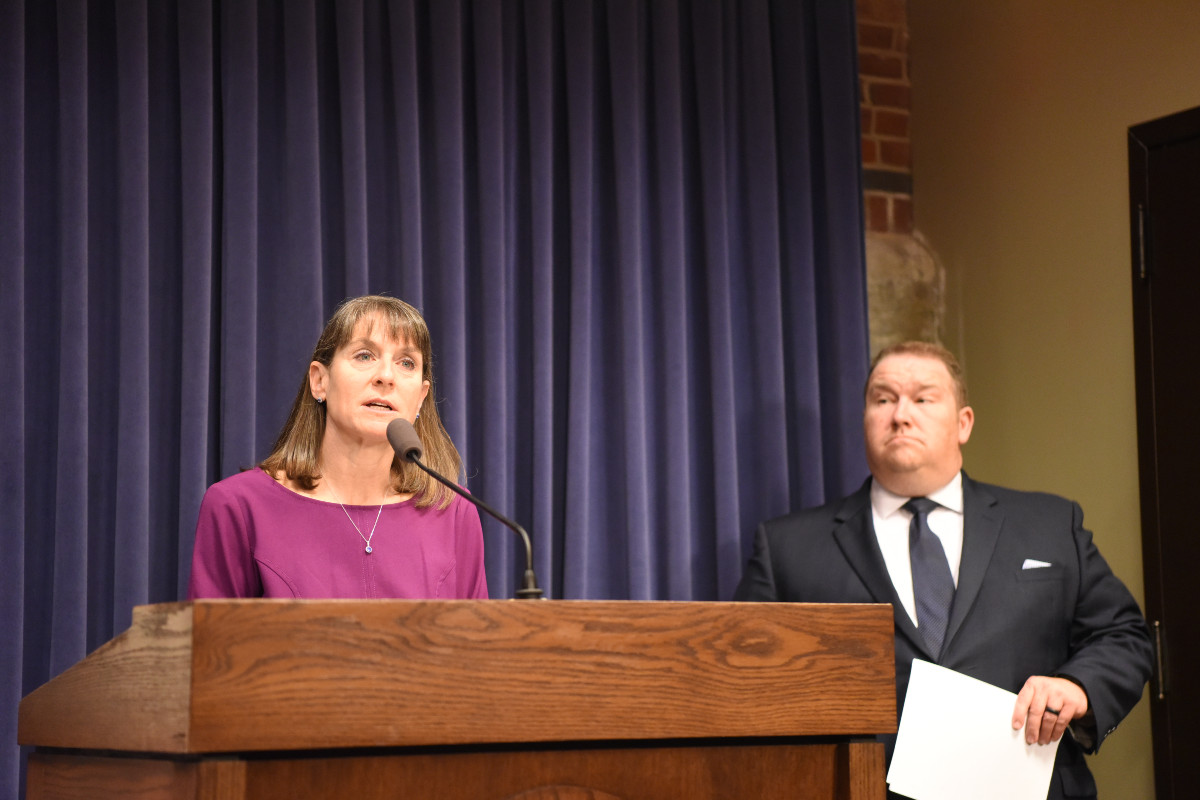 SPRINGFIELD – The burdensome costs of textbooks and course materials for college students often deters them from making the purchase, which in turn can cause a learning barrier and hinder a student’s grades. Members of the Illinois Senate Democratic Caucus outlined a plan during a press conference Wednesday to break down those barriers.
SPRINGFIELD – The burdensome costs of textbooks and course materials for college students often deters them from making the purchase, which in turn can cause a learning barrier and hinder a student’s grades. Members of the Illinois Senate Democratic Caucus outlined a plan during a press conference Wednesday to break down those barriers.
Senator Laura Fine (D-Glenview) is leading a measure – Senate Bill 819 – to allow students who receive MAP Grants to use the funds for room and board, as well as coursework materials including books, software and website access. Currently, MAP Grants can only be used for tuition and necessary fee costs.
“While there are initiatives that ease the financial burden of higher education, there are many essentials to university success, such as textbooks, electronics, and nearby housing, that are often overlooked,” Senator Fine said. “We need to make these resources more accessible to students from all economic backgrounds so that they can be successful as they pursue their education.”
Data from the U.S. Bureau of Labor Statistics shows that even as tuition has risen, no cost of college life has increased faster than textbooks. The bureau found that book prices rose 88% between 2006 and 2016, and the College Board — which administers the SAT exam — reported that students budget more than $1,200 each year for textbooks and other class supplies, including technology.
Under Senator Scott Bennett’s (D-Champaign) Senate Bill 3856, public universities and community colleges would be required to provide all necessary coursework materials for rental free of charge for Illinois students.
Many public universities and community colleges, such as Southern Illinois University, already include free textbook rentals in their tuition and fee costs for all students. Recent studies have found that these more affordable course materials can deliver student cost savings of 29% to 35% annually.
“As chair of the Senate Higher Education Committee, I know students face additional costs that can put financial strain on their families making it difficult for them to finish college,” Bennett said. “This textbook incentive will not only reduce that financial burden, but will ensure students are set up for success by having access to all of their course materials.”
While there are currently many initiatives to make higher education more affordable for children from low-income families, few provide relief for middle-class families who also come under large financial strain when sending their children to college.
To address this issue, Senator Laura Murphy’s measure – Senate Bill 1145 – would allow a taxpayer who either is a student or claims one or more students as dependents to earn a tax credit of up to $1,000 toward tuition and fees for Illinois public institutions of higher education.
“Paying for higher education can be a massive financial undertaking for working families,” Murphy said. “It is important that we provide relief to middle-class families working hard to send their children to Illinois schools.”
Mardell Davis, a Springfield High School senior, is in the process of deciding which college to commit to. The costs associated with each school could be a deciding factor for him.
“As a future college student, I am aware of the sometimes high costs attributed to earning a degree,” Mardell said. “I appreciate that the Senate is working on a bill that will make sure all necessary class materials are more affordable.”
For more information on the bills outlined at the press conference, people can visit https://www.illinoissenatedemocrats.com/HigherEd.







